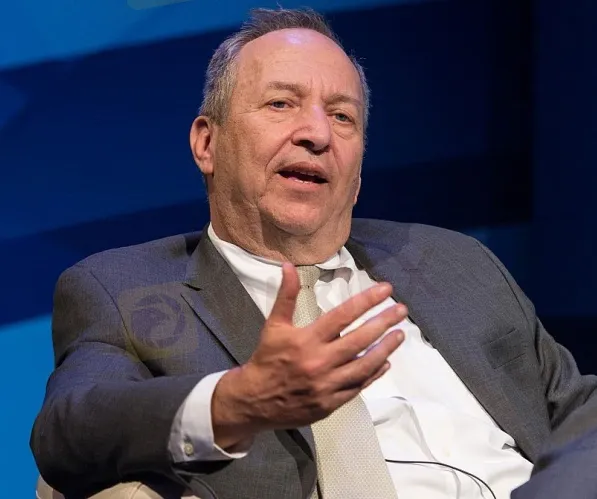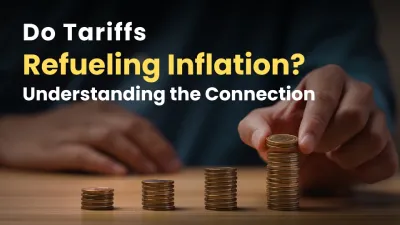简体中文
繁體中文
English
Pусский
日本語
ภาษาไทย
Tiếng Việt
Bahasa Indonesia
Español
हिन्दी
Filippiiniläinen
Français
Deutsch
Português
Türkçe
한국어
العربية
Larry Summers: WH Antitrust Efforts to Fight Inflation Are 'Science Denial'
Abstract:Former Treasury Secretary Larry Summers asserted on Sunday that the antitrust program by President Joe Biden to combat inflation was a form of ''science denial.''

Former Treasury Secretary Larry Summers asserted on Sunday that the antitrust program by President Joe Biden to combat inflation was a form of ''science denial.''
''The emerging claim that antitrust can combat inflation reflects 'science denial,''' Summers, a Harvard economist, posted on a Twitter thread. ''There are many areas like transitory inflation where serious economists differ. Antitrust as an anti-inflation strategy is not one of them.''
''Hipster Brandeisian antitrust, with which the admin and its appointees flirt, is more likely to raise than lower prices.''
Summers added that the antitrust efforts would lead to reduced supply and higher prices in the short term, and he urged the administration to focus on the labor shortage instead.
The comments by the former treasury secretary to President Bill Clinton come as the Biden administration investigates meat and oil conglomerates for anti-competitive practices, which several officials have alleged may be exacerbating inflation, the Daily Mail reported.
Biden has reportedly pushed for Agriculture Secretary Tom Vilsack to investigate large meatpackers that control a prominent share of poultry and pork markets.
Further, the president asked the Federal Trade Commission in October to investigate whether ''illegal conduct'' was leading to higher gas prices.
''Monopoly may lead to high prices, but there is no reason to expect it to lead to rising prices unless it is increasing,'' Summers continued. ''There is no basis whatsoever thinking that monopoly power has increased during the past year in which inflation has greatly accelerated.''
The Bureau of Labor Statistics' consumer price index (CPI), which measures inflation, showed a 6.8% increase from November 2020 to November 2021. The index for all items other than food and energy was up 4.9% over the same period.
For more blockchain news, please download WikiBit - the Global Blockchain Regulatory Inquiry APP.

Disclaimer:
The views in this article only represent the author's personal views, and do not constitute investment advice on this platform. This platform does not guarantee the accuracy, completeness and timeliness of the information in the article, and will not be liable for any loss caused by the use of or reliance on the information in the article.
Read more

Why Fed Keeps Interest Rates Unchanged, How Does It Affect To Forex Market?
Fed keeps interest rates at 4.25%–4.50%, impacting forex market. Dollar may rise as tariffs loom. Explore why rates unchanged and forex effects.

Do Tariffs Refueling Inflation? Understanding the Connection
Investigate how tariffs impact inflation. Learn how trade barriers influence prices and the broader economic landscape.

Will Trump's Trade Policies Fuel Inflation? BlackRock Warns of Economic Risks
Bitcoin and crypto prices plummet as recession fears and inflation warnings shake markets. Experts warn of prolonged economic challenges ahead.

How Will Central Bank Digital Currencies Could Shape Everything?
Central bank digital currencies (CBDCs) could reshape financial stability, addressing inflation, banking risks, and monetary policy challenges.
WikiFX Broker
Latest News
The Withdrawal Trap: How Scam Brokers Lure Victims into Paying More
FCA to Investors: Think Twice Before Trusting These Brokers
Trump\s tariffs: How could they affect the UK and your money
Trump gambles it all on global tariffs he\s wanted for decades
TradingView Brings Live Market Charts to Telegram Users with New Mini App
Trump tariffs: How will India navigate a world on the brink of a trade war?
Interactive Brokers Launches Forecast Contracts in Canada for Market Predictions
Authorities Alert: MAS Impersonation Scam Hits Singapore
IG Group Acquires Freetrade for £160M to Expand UK Investment Market
U.S. March ISM Manufacturing PMI Released
Currency Calculator







